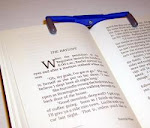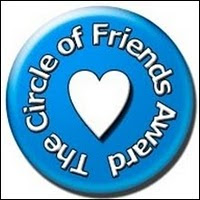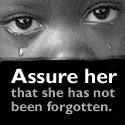Whenever I run across a book that makes it easier to understand the Bible, I want to get the word out! The latest book that falls into that category is ‘Route 66: A Crash Course in Navigating Life with the Bible ’ by Krish Kandiah.
’ by Krish Kandiah.
Here is the synopsis of this book:
Route 66 is a book that helps you to discover how the 66 books of the Bible help us to know God and how to live for him. This book is a crash course in enjoying the breadth and depth of the Bible, packed full of practical help.
is a book that helps you to discover how the 66 books of the Bible help us to know God and how to live for him. This book is a crash course in enjoying the breadth and depth of the Bible, packed full of practical help.
For many of us, there is a disconnect between the Bible we know we should treasure and the book we struggle to read. On the one hand, we know the Bible is a lamp to our feet, honey on our lips, the sword of the Spirit, and given to equip us for every good work. But sometimes the Bible feels more like a bizarre collection of ancient texts filled with obscure laws, irrelevant genealogies and incomprehensible prophecies with a few nuggets of wisdom, timeless stories and comforting promises mixed in. Using the analogy of a journey, Route 66 unfolds how different passages of the Bible can help us travel through different passages of our life.
For many of us, there is a disconnect between the Bible we know we should treasure and the book we struggle to read. On the one hand, we know the Bible is a lamp to our feet, honey on our lips, the sword of the Spirit, and given to equip us for every good work. But sometimes the Bible feels more like a bizarre collection of ancient texts filled with obscure laws, irrelevant genealogies and incomprehensible prophecies with a few nuggets of wisdom, timeless stories and comforting promises mixed in. Using the analogy of a journey, Route 66 unfolds how different passages of the Bible can help us travel through different passages of our life.
Here is the biography of this author:
Dr. Krish Kandiah is a Director of the Evangelical Alliance. He is in demand as a Bible teacher and has written numerous books relating the Bible to everyday life. His books include ‘How To Save A Life: Understanding the Cross (Exploring Christianity) ,’ ‘Destiny: What's Life All About?
,’ ‘Destiny: What's Life All About? , ‘Dysciples: Why I fall Asleep when I Pray and Twelve Other Discipleship Dysfunctions
, ‘Dysciples: Why I fall Asleep when I Pray and Twelve Other Discipleship Dysfunctions ,’ ‘Yahweh: God in All His Fullness
,’ ‘Yahweh: God in All His Fullness ,’ and ‘Lifeswap
,’ and ‘Lifeswap .’ Krish is part of the Spring Harvest Theme Group. He is also a film buff, a fan of Liverpool FL, a husband, a father and a foster carer.
.’ Krish is part of the Spring Harvest Theme Group. He is also a film buff, a fan of Liverpool FL, a husband, a father and a foster carer.
Here’s Dr. Kandiah, with his charming British accent, talking about his book :
:
Dr. Kandiah breaks the book down into 8 sections:
1. Living faithfully (the narrative literature)
2. Living distinctively (the law)
3. Living poetically (the psalms)
4. Living discerningly (the wisdom literature)
5. Living prophetically (the prophets)
6. Living infectiously (the gospels)
7. Living purposefully (the epistles)
8. Living hopefully (the apocalyptic literature)
At the end of the Introduction, Dr. Kandiah shares about the Bible, and his purpose for this book:
The Bible is more than a book. It is more than just a library. It is more than the number-one bestseller of all time. It is more than a priceless ancient literary artefact. It is more than just a useful guide to life. It is more than a precious collection of love-letters. It is more than a treasure-trove of truth. God created the whole vast universe with just a dozen words, and then 800,000 more words into our hands.
Each word was chosen for a reason. This is why reading the Bible and navigating life have to go hand in hand. As we look more closely at the beauty o the poetry, the precision of the law, the passion of the prophets and much more, it is my prayer than our all-powerful God would reveal himself to us and work powerfully in us, so that we can live to please him in every way. (p. 17)
I loved this section from Day 2 in Chapter 6 on Living Infectiously: The gospels and Their Application to Life (Week 6); it is a great example of Dr. Kardish’s writing style:
Jesus was a master literary artist, and his ubiquitous storytelling mode of preaching is anticipated in the Old Testament [Psalm 78:2] and highlighted in the gospels. Mark said of Jesus, “He did not say anything to them without using a parable” [Mark 4:34]. Jesus, with all his insight and intelligence and ingenuity, chose to teach predominantly with stories that were simple enough for children to understand but challenging enough to ensure that even sages struggle to live by them. Adrian Plass helpfully describes a parable as “a story that keeps the listener occupied at the front door while the truth slips in through a side window.” Pinning down the parables is trickier than it may first appear, and even the disciples had to ask Jesus for help. Today we are going to look at some principles for understanding and applying the parables. (p. 132)
In Week 8: Living Hopefully, which looks at Revelation, Dr. Kandiah summarizes this last book of the Bible very skillfully:
Revelation provides Christians with pictures of the future that are so vivid and powerful that God uses them firstly to develop patient endurance in us as struggles come, and secondly to put energy and passion into our step as we seek to be a foretaste of God’s kingdom. For example, imagine how it would have felt to small groups of Christians meeting secretly in houses to hear of the uncountable number of believers that were gathered around the throne of God worshipping the Lamb. It would have encouraged them to keep going, and inspired them to invite others to join them. (p. 183)
I highly recommend this book if you are looking for a personal study or if your Life Group is looking for a book to study this fall. It is clear that Dr. Kandiah has a deep love of the Lord, a strong intellect, and a great sense of humor. I plan to introduce this book to my husband, and study the Bible with him with Dr. Kandiah’s book as a great resource.
You can order this book here .
.
This book was published by Monarch Books and provided by Kregel Publications for review purposes.
















.jpg)


2 comments:
This books sounds very interesting. I really like the way you do your book reviews.
Hi, Wanda.
Thanks for the kind words. Yes, it is a really worthwhile book!
Thanks -
Andrea
Post a Comment